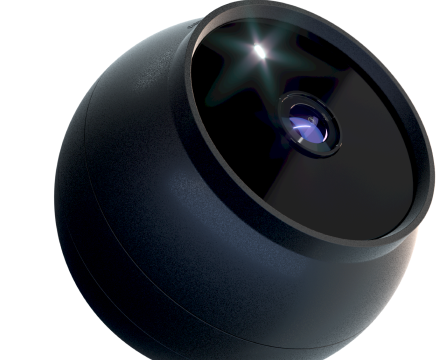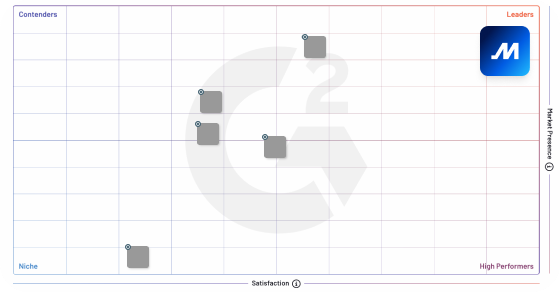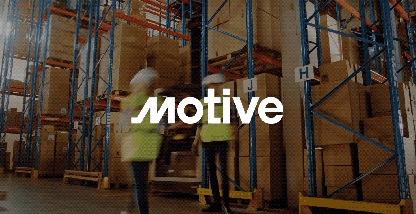The internet accounts for 3.7% of global greenhouse gas emissions, so digital isn’t exactly winning the war on global warming. However, there’s another side to this story. One where the internet’s capabilities are driving sustainable outcomes for businesses across the globe. With the help of the Internet of Things (IoT), industrial businesses are reducing emissions, conserving fuel, and producing less waste.
“Digital can be an engine of sustainability if it’s positioned effectively and at the center of your strategy,” writes Gartner, the Fortune 500 research company. In its “Billions of better decisions” report, global technology company ABB reached the same conclusion.
To learn how companies are using technology to become more sustainable, ABB held 765 discussions with senior managers and executives from 12 industrial segments, including oil and gas, automotive, and food and beverage. Ninety-six percent of all respondents said digitization is essential to meeting corporate sustainability goals. Seventy-two percent of them said they’ve increased their IoT spending to support sustainable initiatives. It’s all evidence of the symbiotic relationship between digital and sustainability.
“Sustainability and digital aren’t merely related. They’re dependent on one another,” says Cody Falcon, Global Product Manager, Digital Platform and Applications, for ABB. “It’s difficult to recognize progress in your sustainability initiatives unless you have a core foundation of digital.”
Important takeaways from ABB’s “Billions of better decisions” survey show that the key to becoming more sustainable is a sound digital strategy.
A single strategy that unifies digital and sustainability is the answer
IoT has been around for a while. However, by allowing fleets to meet their environmental goals more easily, advances in cloud computing have upped the game. Characterized by automation and connectivity, IoT connects equipment, cloud computing, mobile apps, and analytics. The automatic and near-constant data transferral leads to real-time results in the field and at the office.
“Bringing digital prowess and sustainable practices together should be at the forefront of strategic thinking for any business — as a way to differentiate itself and gain long-term viability among customers, regulators, and the communities where businesses operate,” writes Strategy + Business magazine in the article “Digital Technology and Sustainability: Positive Reinforcement.”
Thanks to innovation, the Internet of Things has become more practical over time. Reliable sensors are opening the door to low-cost, low-power solutions. Machine learning and analytics allow businesses to access data more easily. Cloud computing platforms give companies access to the infrastructure they need to scale up. If the Internet of Things has opened the door to more practical ways of working, sustainable initiatives have led to their own positive results.
“Benefits are being realized across the entire supply chain,” Falcon says. “Sustainable initiatives have led to gains in compliance, reduced carbon emissions, real-time safety reporting, and better visibility. As companies progress in their sustainability initiatives, profits and productivity increase. Companies are saying they couldn’t achieve what they do without the digital baseline that they’ve built over the last 10 to 15 years.”
ABB’s survey shows that 75% of companies have a documented sustainability strategy. Of that 75%, more than 90% believe their sustainability strategy is somewhat or very comprehensive. “Of course, publishing a sustainability strategy and putting it on your website is the easy part,” Falcon says. “Managing, monitoring, and reporting on progress quarterly is the hard part.”
Digital tech enhances sustainability
In its “Fourth Industrial Revolution for the Earth” report, PricewaterhouseCoopers (PwC) identifies more than 80 ways that artificial intelligence (AI)-based applications can be used to benefit the environment. Improving fuel economy, mitigating risk, and reducing emissions are just a few examples the report mentions.
“AI in particular has immense potential to help unlock solutions,” PwC’s report states. “In addition to enhancing current efforts to address environmental issues, there is enormous potential to create AI-enabled ‘game changers’ in which the application of AI, often in combination with other Fourth Industrial Revolution technologies, has the potential to deliver transformative solutions.”
In the commercial transportation world, machine learning algorithms “look for patterns in transport demand, optimizing routes and improving efficiency and safety,” PwC states in its report. While connected AVs present opportunities to reduce greenhouse gas emissions in the future, so do the AI-based technologies of today.
Motive’s AI-driven fuel insights, for example, help fleets cut idling by up to 20% and save fleets up to 10% on fuel costs. Such capabilities allow customers to lighten their carbon footprint and shut down fuel-wasting habits quickly. In trucking, automated compliance management is helping to reduce hours of service violations, improve safety, and eliminate paper waste.
85% of companies surveyed are mature in their digital practice or rapidly scaling it
As one who spends every day in the trenches with customers and partners, Falcon finds the 85% statistic above hard to believe. “If I were to look at my thousands of customers on the maturity curve,” says Falcon, “the balance would look like an evenly distributed scatter plot.”
Nevertheless, 34% of ABB’s survey respondents said they’ve implemented IoT at scale, and 51% said they’ve started implementing IoT at scale. “So, more than 80% are either mature in IoT or starting to scale it. This is really shocking,” Falcon says. “I encourage you to think about this figure as a benchmark. Even if this statistic is slightly off due to self-reporting, if 85% of your peers and competitors say they’re mature and rapidly scaling their digital practice, reflect internally on where you think you are against that.
“Have conversations with colleagues, collaborators, and partners about how to ramp up scaling to at least keep pace,” Falcon adds. “Because I can tell you, the leaders in this space aren’t standing still. Everyone is investing heavily and running the race. You’re either going to keep pace or be left behind.”
It’s best to be practical about data selection
Data is critical to helping executives make informed decisions, but data alone won’t solve anything. Businesses need a way to put data into context. “Don’t collect data just to say you have an enterprise data strategy,” Falcon cautions. “Really pursue the data and contextualize it to solve the problems of the business.”
This is where working with a managed service can be beneficial. A managed service such as Motive contextualizes data for you. That means fleet managers can address their most pressing responsibilities while Motive sifts through the data and shows you exactly where to focus.
Investing in IoT isn’t only about financial gains anymore. It’s about sustainability.
ABB’s survey highlights the top factors driving executive investment in IoT, such as cost savings, productivity, and safety. Falcon notes the speed with which sustainability has shot toward the top of the list, driving investment in IoT right behind operational efficiency and productivity.
“I will tell you for a fact that sustainability was number eight on this list just a few years ago. It was in the bottom of the top 10,” Falcon says. “To see that sustainability is number three of the key drivers for digital investments, it’s interesting, and I would bet in the next year or two it will take the number one or number two spot.”
According to a recent Forbes article, “Why corporate strategies should be focused on sustainability,” 90% of executives believe sustainability is important, yet only 60% of businesses have a sustainability strategy. One reason for this, the article states, is that “CEOs and corporate boards are not as engaged as they should be with sustainability strategies.”
There’s no doubt that sustainability is top of mind for executives. “Many corporate leaders are becoming aware of the need to reuse and recycle and are moving toward the circular economy,” Forbes writes. “It is a huge area for growth as well, with the renewable energy market expected to be $2.15 trillion by 2025.”
What’s good for the planet is good for profits
The fifth key takeaway from ABB’s “Billions of Better Decisions” report counters the legacy thinking that companies must choose between saving the planet or saving the business. “That’s no longer the case today,” Falcon says. “Sustainability is one of today’s business differentiators, and reporting transparency is driving competition.”
Falcon reiterates that publishing a sustainability plan is the easy part. “The hard part is doing the real work of measuring against the target and reporting quarterly progress. Look at reports your competitors are publishing,” he says, “then use them to benchmark your own progress. Sustainability is a business differentiator and a business driver. It’s no longer a tradeoff. It’s a true win-win.”








